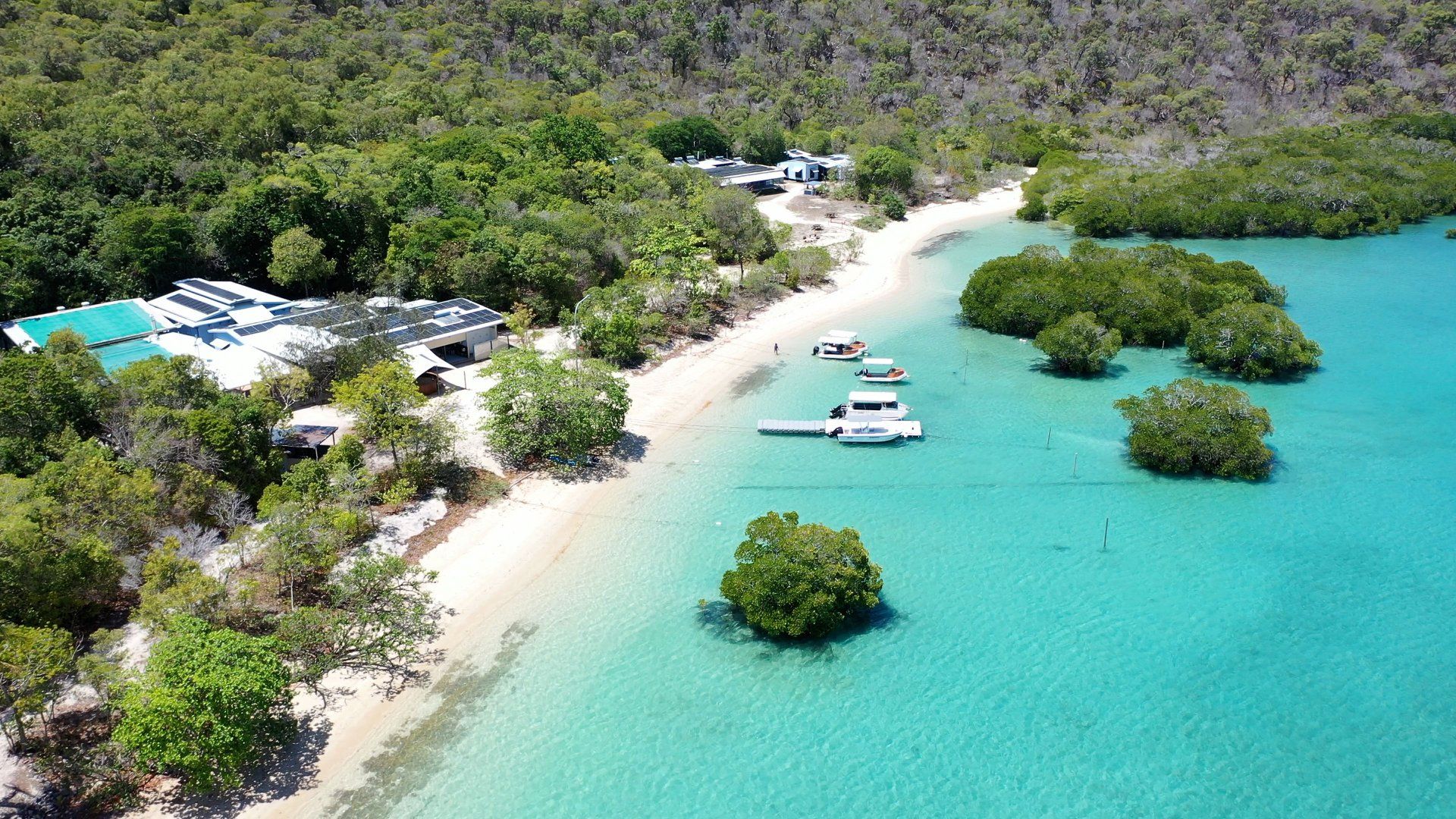
JCU marine biology student explains how to get volunteer experience while studying in Australia
Remember JCU marine biology student Kessia? Well, she’s back with more great advice. This time, she chats about gaining valuable
volunteer experience while you are studying in Australia!
When I first started uni, all the lecturers encouraged us to get volunteering experience. Lots of emphasis was put on it and we were told how this was the way to get a job in the future. Volunteering allows you to put into practice what you have learned in your lectures to the real-world situations.
I’ve put together a few tips on how to get volunteering, more specifically in the science field.
Talk to your lecturers
This is the best way to get your first volunteering experience. If you are interested in a particular field, then talk to the lecturer and ask if they can point you in the right direction in terms of volunteering. You never know, they might have some opportunity for you. In first year, it is sometimes intimidating to go up and talk to the lecturer in a class of 100 students. But do not let the class size stop you. Most lecturers will appreciate your interest in their field of study and will be happy to give you advice.
Join the volunteer list at JCU
There is a database for students willing to volunteer for PhD candidates who might need a hand. Once you join the email list, you will receive emails from students who are looking for a couple of hands to help collect data on the field or help with laboratory work and so on. Some of my friends have been able to go on trips such as collecting seagrass for dugong surveys, or collecting water samples from Ross River. I have had the opportunity to deploy underwater cameras around Hinchinbrook Island. It was definitely a rewarding experience, one that I will do again if I get the chance.
Join the Facebook group
Each college at JCU has a Facebook group. For example, for marine biologists and other environmental courses, the JCU College of Biological, Marine & Environmental Sciences (BioMES) has a Facebook page where students sometimes post about volunteering or job opportunities. You can find come precious information on this group about lots of things. I highly recommend joining the group related to your faculty.
TropWater
The group offers internships to students for a semester in different fields, including aquaculture, mangrove habitats, wetlands, etc. TropWater applications are due a semester before. It offers hands-on experience and you get to work with people who are experts in their field.
Research facilities
James Cook University has a several research facilities on campus including MACRO which works with macroalgae; MARFU, the aquarium complex; MBD, the microalgae site; or EGRU, Geology Research Centre among others. If you talk to the right people, you can get volunteering opportunities at those research centres which are right on campus. From feeding fish, to laboratory work, to cleaning tanks, there is a lot you can learn at those facilities. Even more so, you can volunteer at the Orpheus Island research centre and while helping with cleaning duties, you can spend the rest of your day snorkeling in the amazing protected marine park. You would be required to be on the island for a week or so but it is worth it. Don’t forget to get yourself an Orpheus shirt so you can brag about it to your friends.
Other organizations
There are various other organizations you can volunteer with, including the Australian Marine Conservation Society, an amazing organization that sensitizes the public on how human-induced impacts on the reef such as coal mining.
- Australian Marine Conservation Society on Magnetic Island
- Conservation Volunteers Australia
- NQ Dry Tropics – helps with beach clean-ups
- Reek Check Australia – they offer training programs on how to collect data on the reef
- Australian Institute of Marine Science – A government organization that runs several research experiments on the Great Barrier Reef. You would need a supervisor/lecturer willing to sponsor your volunteering there.
- Great Barrier Reef Marine Park Authority
- Reef HQ
From my own experience, I have found volunteering very rewarding and have learnt a lot in different fields. Talking to people in the field and seeing what it means to apply all I learnt in classes is eye-opening. Do not be discouraged if you find it hard to get any volunteering in the first few years. The more you talk to lecturers or other students, the easier you will find volunteering opportunities. Ask questions! Even if it is not related to your field of interest, having skills and experience in different fields can be beneficial for when you are applying for a job later. The more volunteering you do, the more experience and knowledge you will acquire. This is the hands-on stuff you will need for a job! So, go out there and take the opportunities given to you.
Read Kessia’s other blog, 5 reasons to study marine biology at James Cook University
Marine biology at JCU
Think you might be interested in marine biology? JCU’s location in the tropics allows students and research staff ready access to a wide variety of tropical marine systems including coral reefs, tropical estuaries, mangrove habitats and seagrass beds. Links between research and teaching programs ensure that students are at the cutting edge of marine research.
Program: Master of Science (Marine Biology and Ecology)
Location: Townsville, Queensland
Duration: 1.5 years
Semester intakes: July or February
Application deadline: June 29 and January 30 each year
Apply to the Master of Science at James Cook University!
*




































Ask A Question
Ask us about your program of interest, or if you have a question about our services.
CONTACT US TODAY